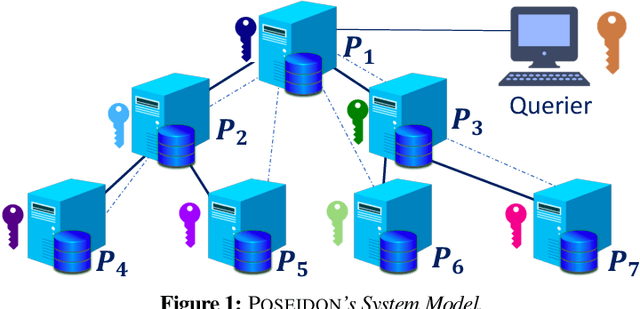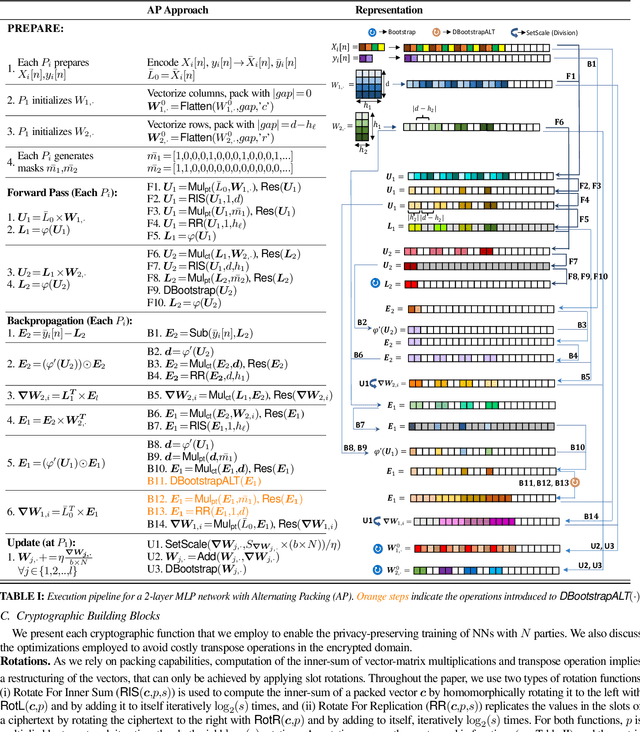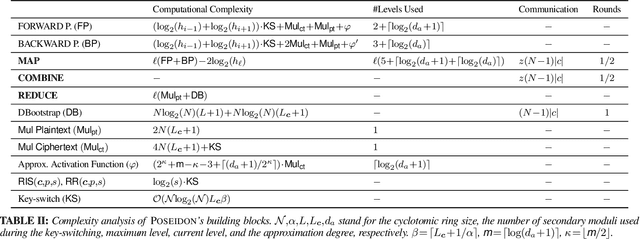Sinem Sav
Inclusive, Differentially Private Federated Learning for Clinical Data
May 28, 2025Abstract:Federated Learning (FL) offers a promising approach for training clinical AI models without centralizing sensitive patient data. However, its real-world adoption is hindered by challenges related to privacy, resource constraints, and compliance. Existing Differential Privacy (DP) approaches often apply uniform noise, which disproportionately degrades model performance, even among well-compliant institutions. In this work, we propose a novel compliance-aware FL framework that enhances DP by adaptively adjusting noise based on quantifiable client compliance scores. Additionally, we introduce a compliance scoring tool based on key healthcare and security standards to promote secure, inclusive, and equitable participation across diverse clinical settings. Extensive experiments on public datasets demonstrate that integrating under-resourced, less compliant clinics with highly regulated institutions yields accuracy improvements of up to 15% over traditional FL. This work advances FL by balancing privacy, compliance, and performance, making it a viable solution for real-world clinical workflows in global healthcare.
A Taxonomy of Attacks and Defenses in Split Learning
May 09, 2025Abstract:Split Learning (SL) has emerged as a promising paradigm for distributed deep learning, allowing resource-constrained clients to offload portions of their model computation to servers while maintaining collaborative learning. However, recent research has demonstrated that SL remains vulnerable to a range of privacy and security threats, including information leakage, model inversion, and adversarial attacks. While various defense mechanisms have been proposed, a systematic understanding of the attack landscape and corresponding countermeasures is still lacking. In this study, we present a comprehensive taxonomy of attacks and defenses in SL, categorizing them along three key dimensions: employed strategies, constraints, and effectiveness. Furthermore, we identify key open challenges and research gaps in SL based on our systematization, highlighting potential future directions.
POSEIDON: Privacy-Preserving Federated Neural Network Learning
Sep 30, 2020



Abstract:In this paper, we address the problem of privacy-preserving training and evaluation of neural networks in an $N$-party, federated learning setting. We propose a novel system, POSEIDON, the first of its kind in the regime of privacy-preserving neural network training, employing multiparty lattice-based cryptography and preserving the confidentiality of the training data, the model, and the evaluation data, under a passive-adversary model and collusions between up to $N-1$ parties. To efficiently execute the secure backpropagation algorithm for training neural networks, we provide a generic packing approach that enables Single Instruction, Multiple Data (SIMD) operations on encrypted data. We also introduce arbitrary linear transformations within the cryptographic bootstrapping operation, optimizing the costly cryptographic computations over the parties, and we define a constrained optimization problem for choosing the cryptographic parameters. Our experimental results show that POSEIDON achieves accuracy similar to centralized or decentralized non-private approaches and that its computation and communication overhead scales linearly with the number of parties. POSEIDON trains a 3-layer neural network on the MNIST dataset with 784 features and 60K samples distributed among 10 parties in less than 2 hours.
 Add to Chrome
Add to Chrome Add to Firefox
Add to Firefox Add to Edge
Add to Edge